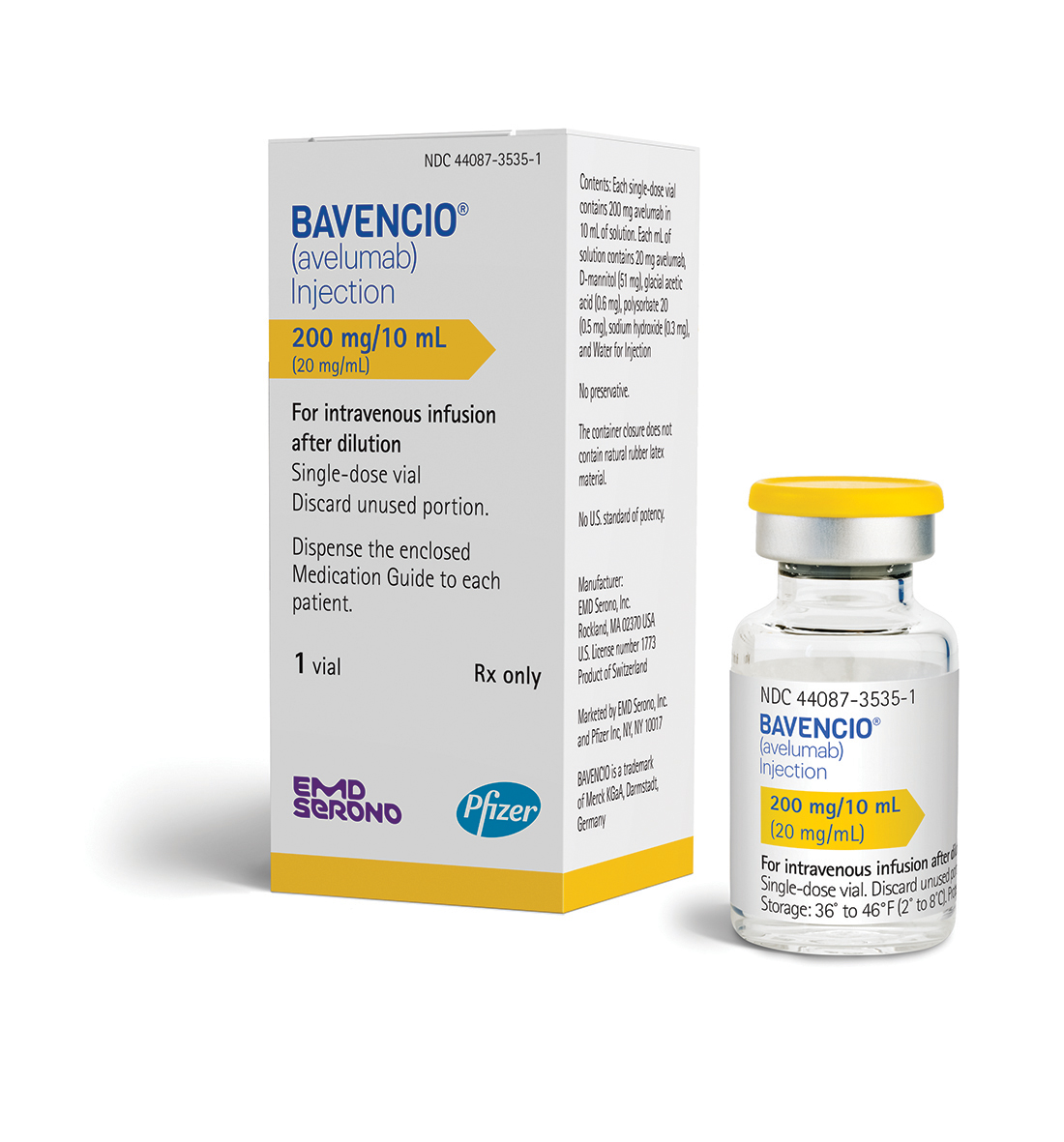Merck and Pfizer's Bavencio approved for renal cell carcinoma

Merck KGaA and Pfizer’s immunotherapy Bavencio (avelumab) has been approved by the FDA in combination with Pfizer’s Inlyta (axitinib) for the first-line treatment of patients with advanced renal cell carcinoma (RCC).
The accelerated approval was based on positive results from the Phase III JAVELIN Renal 101 study, which showed the combination significantly lowered risk of disease progression or death by 31% and extended progression-free survival by 5.4 months for patients with advanced RCC compared with sunitinib.
This is good news for a drug that has faced some challenges recently.
In March, Merck and Pfizer discontinued an ovarian cancer trial for Bavencio. The decision was based on several emerging factors since the trial’s initiation, including interim results from the separate JAVELIN Ovarian 100 trial announced in December showing that Bavencio was unable to improve progression-free survival when used as a maintenance therapy.
That failure came just a few weeks after Merck and Pfizer conceded defeat in another phase III study of Bavencio, the JAVELIN Ovarian 200 trial in platinum-resistant or platinum-refractory ovarian cancer.
That was not the first indication that Bavencio has missed the mark in – it failed a trial in second-line non-small cell lung cancer (NSCLC) in February last year and in third-line advanced stomach cancer treatment in 2017.
The slew of disappointments put Merck and Pfizer in a difficult position in the immuno-oncology space, where Bavencio trailed Opdivo, Keytruda and Tecentriq as the fourth drug to come to market, and has continued to lag behind its competitors.
However the new approval puts more pressure on Opdivo (nivolumab) – at the moment its manufacturer BMS has carved out a strong position in first-line RCC with the drug in combination with CTLA4 inhibitor Yervoy (ipilimumab). According to BMS the combo is fast becoming the standard of care in the US, and first-line RCC – along with adjuvant melanoma – were the drivers of Opdivo’s sales growth last year.
Bavencio and Inlyta are just one rival therapy threatening that position. MSD has shown that its own PD-1 inhibitor Keytruda (pembrolizumab) in combination with Inlyta can reduce the risk of death in RCC by around 47% compared with Sutent.










